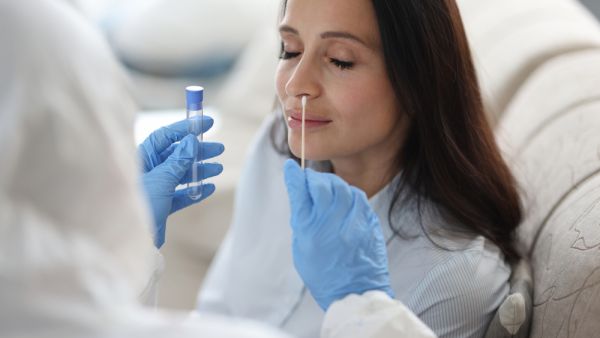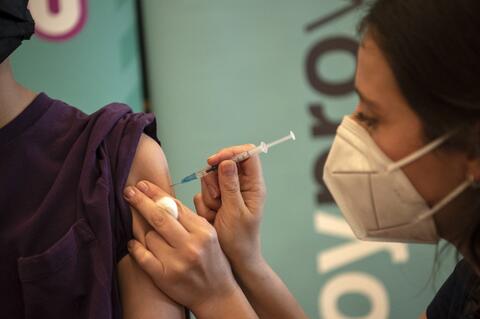A new machine that could change the process of testing for viruses, including COVID-19, is being trialed in the UK.
The machine, developed by UK-based company Kromek — which originally made devices to detect chemicals or explosives to help prevent terrorist attacks — can detect COVID-19 particles in the air by taking samples, converting them to liquid and then analyzing them using DNA sequencing.
#RT @anwaribrahim: RT @drmusanordin: UK pop: 68 million
— Zaen Kasturi (@ZaenKasturi) June 22, 2021
Daily Tests: 1 million
Positive Rate: 0.8%
M’sia: 33 million
Daily Tests: 80,000
Positive Rate: 6.8%
UK twice our pop doing 12.5X our Testing
How on earth are we ever going to tame this virus?
We’… pic.twitter.com/4fcCWlxnv6
The results can be provided in real time without the need for scientific intervention or lab testing, and could alert authorities to possible outbreaks more quickly than current testing systems such as individual lateral flow or polymerase chain reaction tests.
Two units have now been installed in the northeast of the UK, one at Teesside International Airport and the other at a local primary school, for a trial period.
Teesside’s Mayor Ben Houchen welcomed the trial, saying he hopes the installations will play a part in reopening the UK economy, especially the air travel sector.
Kronek’s CEO Dr. Arnab Basu said: “Our system can augment the government’s ‘Test and Trace’ system by enabling early identification of potential exposure to the virus while supporting the safe return of visitors to public spaces like mass transport, retail outlets and entertainment venues.”
72 years old man Dave Smith from Bristol in UK had Covid-19 for 305 days (10 months); the longest ever recorded persistent infection with the virus, his wife had arranged his funeral 5 different times.
— News Bits (@NewsBits_) June 24, 2021
Dave alive and well after finally testing negative to the virus. #NewsBits
He added: “We also believe that the continuous monitoring with our system, which can test for a wide spectrum of viruses as well as mutations of COVID-19, has significant potential for protecting against the outbreak of pandemics in the future.”
This article has been adapted from its original source.










